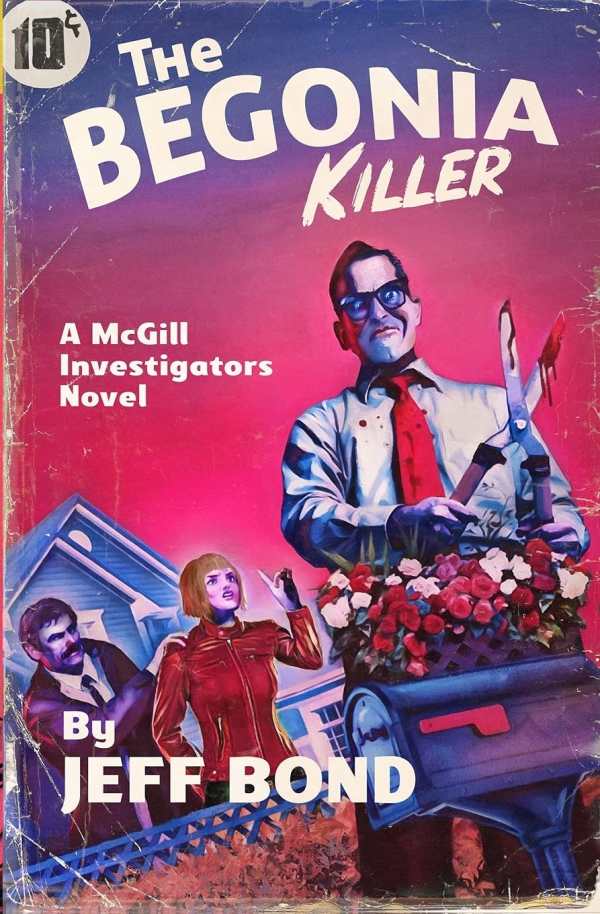The Begonia Killer
Capturing the intensity of a search for missing children, The Begonia Killer interjects an element of romance into its propulsive mystery.
Jeff Bond’s mystery novel The Begonia Killer combines an urgent search for missing children with a potential for romance between a private investigator and a police detective.
Molly McGill is a New Jersey-based private investigator and a single mother. She meets with a would-be client, Martha, who suspects that her neighbor, Kent, is holding two local boys in his immaculate home. The home, which is surrounded by an impeccable garden, has papered-over windows that prompted Martha’s suspicions, which deepened when Kent massacred his precious begonias in a fit of rage. The police have been notified, but they haven’t given any credence to Martha’s claims.
McGill gets into Kent’s house on a pretext of selling him better begonia seeds. She notices kid-friendly foods, and once she ties a brand of mini granola bars to one of the missing boys, an attractive detective becomes involved in the case, too.
McGill is a reliable narrator, capable of questioning her motives and perceptions and able to change her behavior based on reflection and past experience. She makes some far-fetched connections once she gets inside Kent’s house, but later admits that she is fallible. She, Kent, and the detective evolve in organic ways as the plot unfolds and new information is uncovered. Their moral perspectives shift, as does each one’s need to be in control, adding depth to the story’s surface action.
The book’s language is structured, direct, and action-oriented, with the occasional use of imagery to illustrate emotions beneath the matter-of-fact tone. When McGill and the detective’s touchy and assertive temperaments clash, stifling a romantic moment between them, McGill muses about “the disappointment in his touch like damp laundry in the dryer: a whole hour tumbling around for nothing.”
The plot takes several twists; facts turn up linking Kent to the missing boys as other revelations dash McGill’s hopes of solving the case. Red herrings and misdirections ensue, but these connect to central questions about the boys’ safety and Kent’s suspicious behavior.
This admirable unity of purpose is disrupted halfway into the story by a casual mention that the action is taking place in a world just recovering from a near-apocalypse called the Anarchy. A few additional mentions are made of the Anarchy, but no consequences, attitudes, or customs from that time are described, and no connection is made to the missing boys, to Kent, or to the potential romance between McGill and the detective.
Capturing the intensity of a search for missing children, The Begonia Killer interjects an element of romance into its propulsive mystery.
Reviewed by
Michele Sharpe
Disclosure: This article is not an endorsement, but a review. The publisher of this book provided free copies of the book and paid a small fee to have their book reviewed by a professional reviewer. Foreword Reviews and Clarion Reviews make no guarantee that the publisher will receive a positive review. Foreword Magazine, Inc. is disclosing this in accordance with the Federal Trade Commission’s 16 CFR, Part 255.

